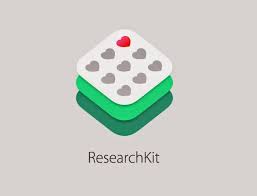open health
See the following -
tranSMART Foundation Releases Version 16.1 of Its Open-Source, Open-Data Translational Medicine Platform
 The tranSMART Foundation, a non-profit organization providing a global, open-source, open-data knowledge management platform for scientists to share pre-competitive translational research data, today announced the release of tranSMART version 16.1. This version brings key enhancements to the quality and stability of the platform, a significantly improved scripted installation process and a library of more than 100 tranSMART-ready™ public datasets that can be loaded into the platform using simple included scripts...
The tranSMART Foundation, a non-profit organization providing a global, open-source, open-data knowledge management platform for scientists to share pre-competitive translational research data, today announced the release of tranSMART version 16.1. This version brings key enhancements to the quality and stability of the platform, a significantly improved scripted installation process and a library of more than 100 tranSMART-ready™ public datasets that can be loaded into the platform using simple included scripts...
- Login to post comments
Tübingen neuroscientists develop inexpensive, self-manufactured lab equipment
 Laboratory equipment is one of the largest cost factors in neuroscience. However, many experiments can be performed with good results using self-assembled setups with 3-D printed components and self-programmed electronics. The inexpensive system called “FlyPi” developed by André Maia Chagas and Tom Baden allows for many standard lab processes including light and fluorescence microscopy, optogenetics, thermogenetics, and behavioural studies in small animals (e.g. round-worms, fruit flies, zebrafish larvae)...
Laboratory equipment is one of the largest cost factors in neuroscience. However, many experiments can be performed with good results using self-assembled setups with 3-D printed components and self-programmed electronics. The inexpensive system called “FlyPi” developed by André Maia Chagas and Tom Baden allows for many standard lab processes including light and fluorescence microscopy, optogenetics, thermogenetics, and behavioural studies in small animals (e.g. round-worms, fruit flies, zebrafish larvae)...
- Login to post comments
Two Drug Firms Experiment With Use of Apple's ResearchKit
 Two major pharmaceutical companies are using Apple's ResearchKit open-source project in experiments aimed at helping medical researchers gain more data and fresh insights as they seek ways to battle human diseases and illnesses. Pharmaceutical company GlaxoSmithKline confirmed its work in a July 10 tweet, saying the company is "looking @ Apple's #ResearchKit for clinical trials," while Purdue Pharma also said it is exploring early possible uses of ResearchKit in its own drug research, according to a July 12 story by Buzzfeed. Read More »
Two major pharmaceutical companies are using Apple's ResearchKit open-source project in experiments aimed at helping medical researchers gain more data and fresh insights as they seek ways to battle human diseases and illnesses. Pharmaceutical company GlaxoSmithKline confirmed its work in a July 10 tweet, saying the company is "looking @ Apple's #ResearchKit for clinical trials," while Purdue Pharma also said it is exploring early possible uses of ResearchKit in its own drug research, according to a July 12 story by Buzzfeed. Read More »
- Login to post comments
UK NHS Delivers Ambitious Health IT Project - Believed to be the Biggest of its Kind
 HSCIC has just completed an ambitious 18 month transition project to entirely rebuild and redevelop the Spine on Open Source software and to move it to in-house management. This was achieved without disrupting the service it provides to 28,000 organisations and enabled the secure transfer of almost 150TB of data, including the demographic details of 80m people. The new Spine is believed to be the biggest public sector IT system to be built entirely on Open Source software, making it easier for developers to work with. It is managed from the Health and Social Care Information Centre's headquarters in Leeds.
HSCIC has just completed an ambitious 18 month transition project to entirely rebuild and redevelop the Spine on Open Source software and to move it to in-house management. This was achieved without disrupting the service it provides to 28,000 organisations and enabled the secure transfer of almost 150TB of data, including the demographic details of 80m people. The new Spine is believed to be the biggest public sector IT system to be built entirely on Open Source software, making it easier for developers to work with. It is managed from the Health and Social Care Information Centre's headquarters in Leeds.
- Login to post comments
UK's Leeds City Council and Ripple Award Part of Open Source Health IT Project to Lockheed Martin
 Leeds City Council and Ripple have chosen Lockheed Martin to help deliver aspects of the open source IT development to build an integrated digital care record platform. Ripple has a vision to create an open source health and care platform that allows frontline staff access to the most up to date and joined up care information about an individual – driving better and safer care.
Leeds City Council and Ripple have chosen Lockheed Martin to help deliver aspects of the open source IT development to build an integrated digital care record platform. Ripple has a vision to create an open source health and care platform that allows frontline staff access to the most up to date and joined up care information about an individual – driving better and safer care.
- Login to post comments
University Of Bradford To Be Hub For Digital Healthcare
 The University of Bradford will become a hub for the development of healthcare apps and other digital healthcare solutions after becoming the first UK higher education institution to be awarded NHS England Code4Health Community status: Code4Health University of Bradford <https://code-4-health.org/communities>. The award recognises the University’s central role in creating a community of academics, clinicians, developers, suppliers and patients that will collaborate to develop and test innovative health-related technologies with the aim of these making their way into the healthcare market.
The University of Bradford will become a hub for the development of healthcare apps and other digital healthcare solutions after becoming the first UK higher education institution to be awarded NHS England Code4Health Community status: Code4Health University of Bradford <https://code-4-health.org/communities>. The award recognises the University’s central role in creating a community of academics, clinicians, developers, suppliers and patients that will collaborate to develop and test innovative health-related technologies with the aim of these making their way into the healthcare market.
- Login to post comments
University of Chicago Awarded $20 Million To Host COVID-19 Medical Imaging Center
 A new center hosted at the University of Chicago-co-led by the largest medical imaging professional organizations in the country-will help tackle the ongoing COVID-19 pandemic by curating a massive database of medical images to help better understand and treat the disease. Led by Prof. Maryellen Giger of UChicago Medicine, the Medical Imaging and Data Resource Center (MIDRC) will create an open-source database with medical images from thousands of COVID-19 patients. The center will be funded by a two-year, $20 million contract from the National Institute of Biomedical Imaging and Bioengineering at the National Institutes of Health (NIH).
A new center hosted at the University of Chicago-co-led by the largest medical imaging professional organizations in the country-will help tackle the ongoing COVID-19 pandemic by curating a massive database of medical images to help better understand and treat the disease. Led by Prof. Maryellen Giger of UChicago Medicine, the Medical Imaging and Data Resource Center (MIDRC) will create an open-source database with medical images from thousands of COVID-19 patients. The center will be funded by a two-year, $20 million contract from the National Institute of Biomedical Imaging and Bioengineering at the National Institutes of Health (NIH).
- Login to post comments
University of Utah Health and Intermountain Healthcare Receive $3.8 Million to Develop Advanced Open Source Cancer Screening Tool
 Researchers from the University of Utah Health, Intermountain Healthcare, and Huntsman Cancer Institute received a grant for $3.8 Million from the National Cancer Institute to develop an advanced cancer screening tool. The new tool will couple electronic health record technologies with advanced clinical decision support (CDS) tools to screen for several types of cancer and identify and manage high risk patients within primary care settings and the broader care delivery system.
Researchers from the University of Utah Health, Intermountain Healthcare, and Huntsman Cancer Institute received a grant for $3.8 Million from the National Cancer Institute to develop an advanced cancer screening tool. The new tool will couple electronic health record technologies with advanced clinical decision support (CDS) tools to screen for several types of cancer and identify and manage high risk patients within primary care settings and the broader care delivery system.
- Login to post comments
US Senate Releases Draft Future Pandemic Preparedness Plan - Asks for Feedback
 On June 10, 2020 the US Senate released a white paper titled "Preparing for the Next Pandemic" under the signature of Senator Lamar Alexander of Tennessee. The white paper has five recommendations to address future pandemics based on lessons learned from COVID-19 and the past 20 years of pandemic planning. "The five recommendations...along with a series of questions at the end of this white paper, are intended to elicit recommendations that Congress can consider and act on this year," Senator Alexander said in a statement, adding that "I am inviting comments, responses, and any additional recommendations for the Senate Committee on Health, Education, Labor and Pensions to consider. This feedback will be shared with my colleagues, both Democrat and Republican." This feedback from the public will be accepted until June 26, 2020... Read More »
On June 10, 2020 the US Senate released a white paper titled "Preparing for the Next Pandemic" under the signature of Senator Lamar Alexander of Tennessee. The white paper has five recommendations to address future pandemics based on lessons learned from COVID-19 and the past 20 years of pandemic planning. "The five recommendations...along with a series of questions at the end of this white paper, are intended to elicit recommendations that Congress can consider and act on this year," Senator Alexander said in a statement, adding that "I am inviting comments, responses, and any additional recommendations for the Senate Committee on Health, Education, Labor and Pensions to consider. This feedback will be shared with my colleagues, both Democrat and Republican." This feedback from the public will be accepted until June 26, 2020... Read More »
- Login to post comments
Usability And Accessibility Start With Open Communication
 Amazing though it may seem, we each experience the world differently. That's one reality with over 6 billion interpretations. Many of us use computers to broaden our experience of the world, but a computer is part of reality and so if you experience reality without, for instance, vision or sound, then you also experience a computer without vision or sound (or whatever your unique experience might be). As humans, we don't quite have the power to experience the world the way somebody does. We can mimic some of the surface-level things (I can close my eyes to mimic blindness, for example) but it's only an imitation, without history, context, or urgency. As a result of this complexity, we humans design things primarily for ourselves, based on the way we experience the world. That can be frustrating, from an engineering and design viewpoint, because even when you intend to be inclusive, you end up forgetting something "obvious" and essential, or the solution to one problem introduces a problem for someone else, and so on. What's an open source enthusiast, or programmer, or architect, or teacher, or just everyday hacker, supposed to do to make software, communities, and processes accessible?
Amazing though it may seem, we each experience the world differently. That's one reality with over 6 billion interpretations. Many of us use computers to broaden our experience of the world, but a computer is part of reality and so if you experience reality without, for instance, vision or sound, then you also experience a computer without vision or sound (or whatever your unique experience might be). As humans, we don't quite have the power to experience the world the way somebody does. We can mimic some of the surface-level things (I can close my eyes to mimic blindness, for example) but it's only an imitation, without history, context, or urgency. As a result of this complexity, we humans design things primarily for ourselves, based on the way we experience the world. That can be frustrating, from an engineering and design viewpoint, because even when you intend to be inclusive, you end up forgetting something "obvious" and essential, or the solution to one problem introduces a problem for someone else, and so on. What's an open source enthusiast, or programmer, or architect, or teacher, or just everyday hacker, supposed to do to make software, communities, and processes accessible?
- Login to post comments
Using Blender to Prepare for Orthopedic Surgeries
 The planning of orthopedic surgeries is a difficult process. In a lot of ways, it's like working while wearing a blindfold; a surgeon can't see the bone that needs to be worked on until during the actual surgery, when time is most critical. Even with X-rays and CT scans, the raw data can be difficult to interpret correctly. Fortunately, open source software can (and does!) help reduce the guesswork. At the 2015 Blender Conference, Vasily Shishkin gave a very interesting talk on his research project and use of Blender and 3D printing in the planning and guiding of orthopedic surgery...You may find yourself thinking, "Wait a minute. Blender? The same Blender that's used for making pretty images and animations? That Blender?" Yes. That Blender...
The planning of orthopedic surgeries is a difficult process. In a lot of ways, it's like working while wearing a blindfold; a surgeon can't see the bone that needs to be worked on until during the actual surgery, when time is most critical. Even with X-rays and CT scans, the raw data can be difficult to interpret correctly. Fortunately, open source software can (and does!) help reduce the guesswork. At the 2015 Blender Conference, Vasily Shishkin gave a very interesting talk on his research project and use of Blender and 3D printing in the planning and guiding of orthopedic surgery...You may find yourself thinking, "Wait a minute. Blender? The same Blender that's used for making pretty images and animations? That Blender?" Yes. That Blender...
- Login to post comments
Using LibreHealth EHR for Education in Academic Settings
 Traditionally, access to EHRs has been viewed as important only for software training, particularly order entry. What seems to be overlooked is the potential for education, analytics and research. Additionally, one could argue that there should be an open-source “EHR Sandbox” so multiple external EHR integrations could be studied and reported. Furthermore, many EHR users view the software as a means to enter or extract data on one patient at a time and fail to see the benefit in analyzing their entire clinic population (population health). The following diagram displays how an EHR could be used for education, training, analytics and research.
Traditionally, access to EHRs has been viewed as important only for software training, particularly order entry. What seems to be overlooked is the potential for education, analytics and research. Additionally, one could argue that there should be an open-source “EHR Sandbox” so multiple external EHR integrations could be studied and reported. Furthermore, many EHR users view the software as a means to enter or extract data on one patient at a time and fail to see the benefit in analyzing their entire clinic population (population health). The following diagram displays how an EHR could be used for education, training, analytics and research.
- Login to post comments
Using Open Technology To Build a Biodefense Against the Coronavirus
 As the number of US cases of the coronavirus rises, how will healthcare professionals be able to tell the difference between which panicked patients with similar symptoms has what? Even if the patient hasn't traveled to Wuhan or China recently, what if they sat at a Starbucks with someone who did? With the incubation time-lag before symptoms appear, who would even know? The challenge of monitoring 330 million people for infectious disease outbreaks is daunting. Take the flu as an example. During the last flu season which, as already discussed, was not as complex as this year's season, approximately 35.5 million Americans had flu symptoms, 16.5 million received medical care, 490,600 were hospitalized and 34,200 died.
As the number of US cases of the coronavirus rises, how will healthcare professionals be able to tell the difference between which panicked patients with similar symptoms has what? Even if the patient hasn't traveled to Wuhan or China recently, what if they sat at a Starbucks with someone who did? With the incubation time-lag before symptoms appear, who would even know? The challenge of monitoring 330 million people for infectious disease outbreaks is daunting. Take the flu as an example. During the last flu season which, as already discussed, was not as complex as this year's season, approximately 35.5 million Americans had flu symptoms, 16.5 million received medical care, 490,600 were hospitalized and 34,200 died.
- Login to post comments
VA Announces Launch of 'Lighthouse Lab' at HIMSS18 Conference
 ...the U.S. Department of Veterans Affairs (VA) announced the launch of a “beta” version of its Lighthouse Lab, a computer platform offering software developers access to tools for creating mobile and web applications that will help Veterans better manage their care, services and benefits....Considered the “front door” to VA’s vast data stores, Lighthouse is the department’s application programming interface (API) management platform, and functions similar to a waiter’s role in a restaurant — the critical link communicating orders to the “kitchen.” For VA, the kitchen is the system that will prepare the order then deliver it back to the waiter, or API.
...the U.S. Department of Veterans Affairs (VA) announced the launch of a “beta” version of its Lighthouse Lab, a computer platform offering software developers access to tools for creating mobile and web applications that will help Veterans better manage their care, services and benefits....Considered the “front door” to VA’s vast data stores, Lighthouse is the department’s application programming interface (API) management platform, and functions similar to a waiter’s role in a restaurant — the critical link communicating orders to the “kitchen.” For VA, the kitchen is the system that will prepare the order then deliver it back to the waiter, or API.
- Login to post comments
VA Announces New Veterans Health Application Programming Interface
 The U.S. Department of Veterans Affairs (VA) recently launched its first Health Application Programming Interface (API) that will power the next generation of Blue Button features by enabling Veterans to interact with their own personal health data within innovative mobile and web-based apps. Introduced on Dec. 4, at the White House Executive Forum on Healthcare Data Interoperability, Health APIs will power the next generation of Blue Buttonfeatures by enabling Veterans to interact with their own personal health data within innovative mobile and web-based apps. Sponsored by the White House Office of American Innovation, the forum brought together senior health care leaders from both the public and private sectors. Health APIs will also support new clinician-focused applications, and can also serve as a foundation for data sharing between health systems to support Veteran care.
The U.S. Department of Veterans Affairs (VA) recently launched its first Health Application Programming Interface (API) that will power the next generation of Blue Button features by enabling Veterans to interact with their own personal health data within innovative mobile and web-based apps. Introduced on Dec. 4, at the White House Executive Forum on Healthcare Data Interoperability, Health APIs will power the next generation of Blue Buttonfeatures by enabling Veterans to interact with their own personal health data within innovative mobile and web-based apps. Sponsored by the White House Office of American Innovation, the forum brought together senior health care leaders from both the public and private sectors. Health APIs will also support new clinician-focused applications, and can also serve as a foundation for data sharing between health systems to support Veteran care.
- Login to post comments